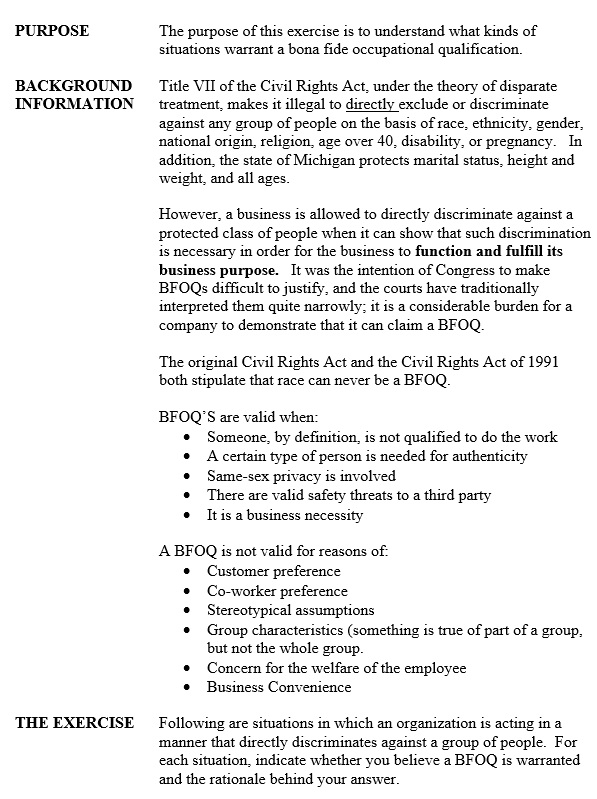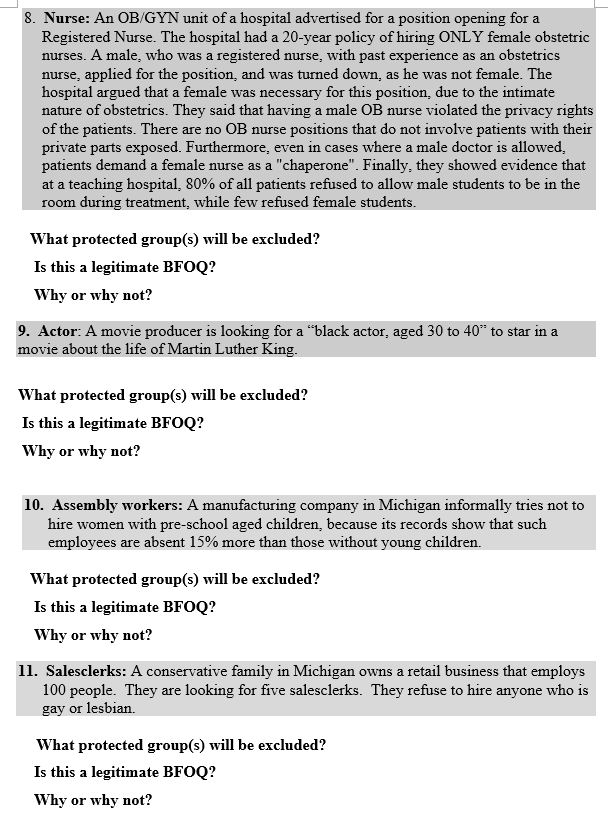Answered step by step
Verified Expert Solution
Question
1 Approved Answer
Nurse: An OB/GYN unit of a hospital advertised for a position opening for a Registered Nurse. The hospital had a 20-year policy of hiring ONLY


- Nurse: An OB/GYN unit of a hospital advertised for a position opening for a Registered Nurse. The hospital had a 20-year policy of hiring ONLY female obstetric nurses. A male, who was a registered nurse, with past experience as an obstetrics nurse, applied for the position, and was turned down, as he was not female. The hospital argued that a female was necessary for this position, due to the intimate nature of obstetrics. They said that having a male OB nurse violated the privacy rights of the patients. There are no OB nurse positions that do not involve patients with their private parts exposed. Furthermore, they showed evidence that at a teaching hospital, 80% of all patients refused to allow male students to be in the room during treatment, while few refused female students.
- What protected group(s) will be excluded?
- Is this a legitimate BFOQ?
- Why or why not?
- Actor: A movie producer is looking for a black actor, aged 30 to 40 to star in a movie about the life of Martin Luther King.
- What protected group(s) will be excluded?
- Is this a legitimate BFOQ?
- Why or why not?
- Assembly workers: A manufacturing company in Michigan informally tries not to hire women with pre-school aged children, because its records show that such employees are absent 15% more than those without young children.
- What protected group(s) will be excluded?
- Is this a legitimate BFOQ?
- Why or why not?
- Salesclerks: A conservative family in Michigan owns a retail business that employs 100 people. They are looking for five salesclerks. They refuse to hire anyone who is gay or lesbian.
- What protected group(s) will be excluded?
- Is this a legitimate BFOQ?
- Why or why not?
Step by Step Solution
There are 3 Steps involved in it
Step: 1

Get Instant Access to Expert-Tailored Solutions
See step-by-step solutions with expert insights and AI powered tools for academic success
Step: 2

Step: 3

Ace Your Homework with AI
Get the answers you need in no time with our AI-driven, step-by-step assistance
Get Started


